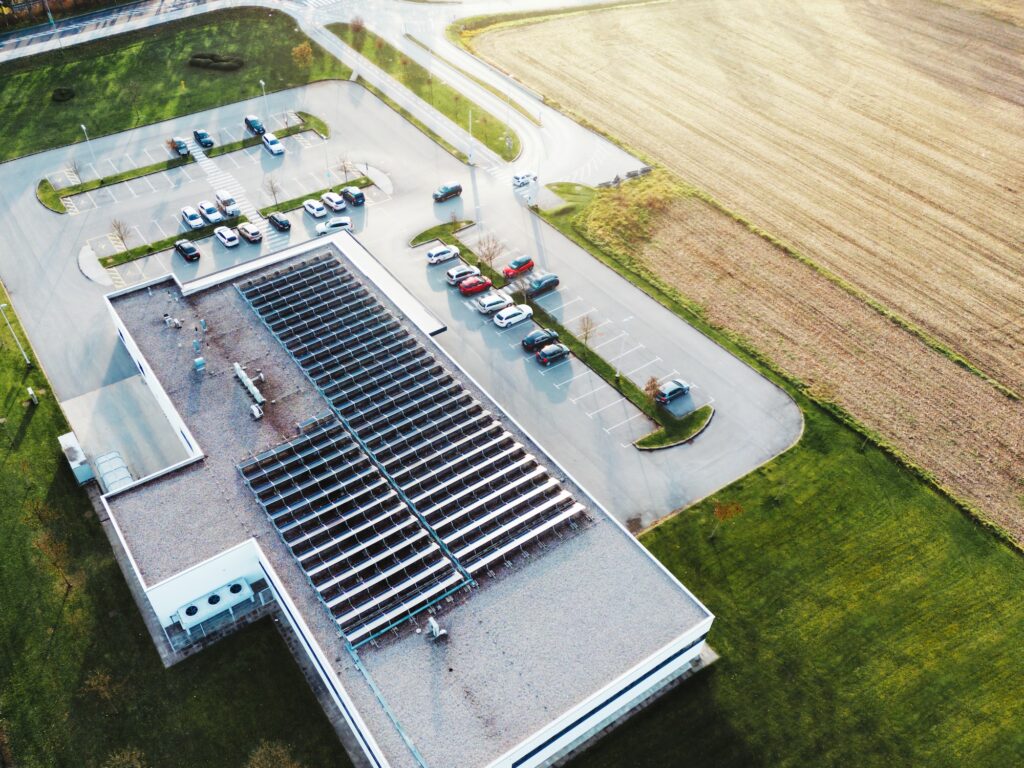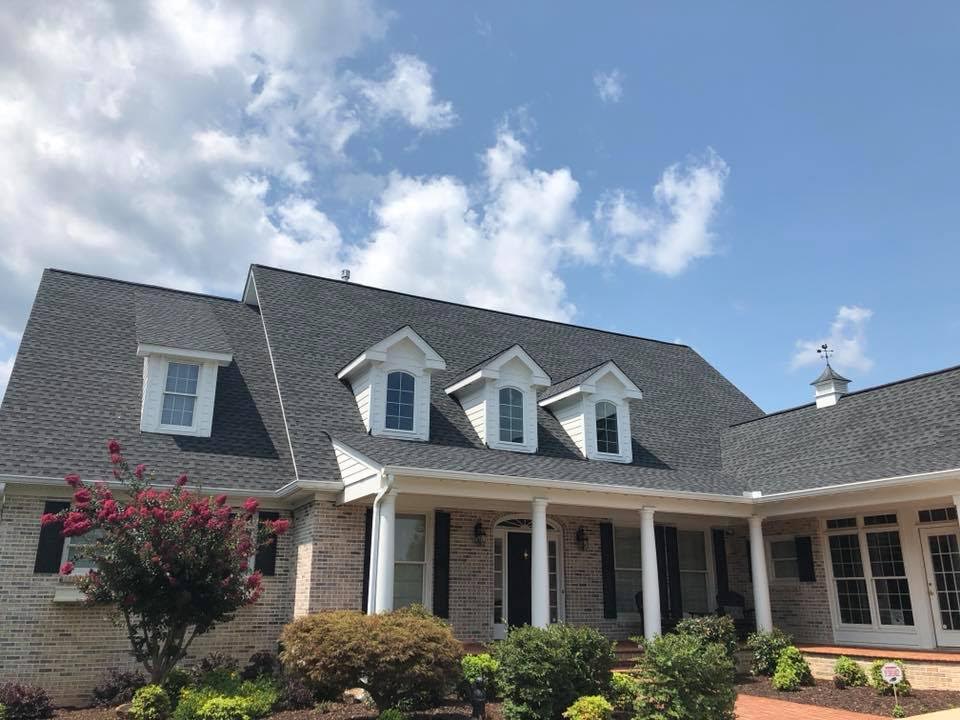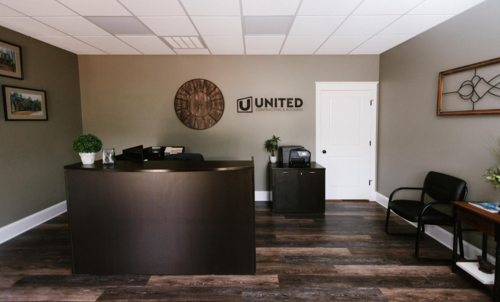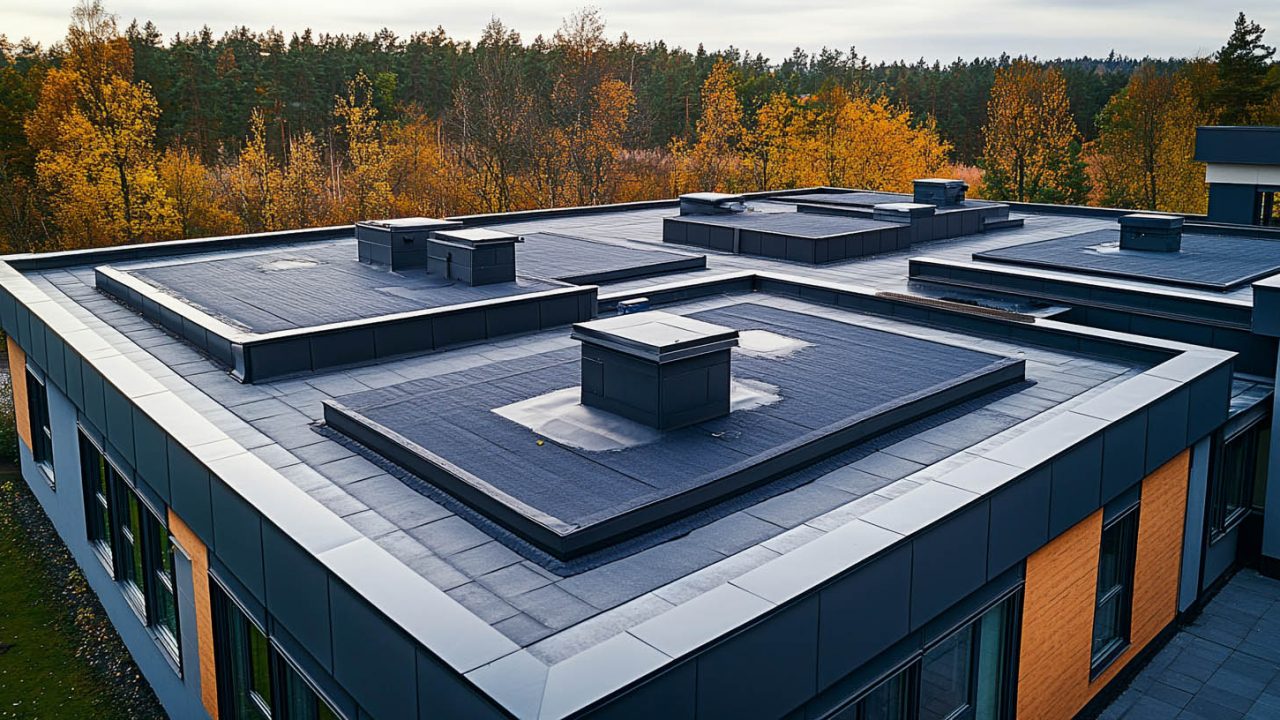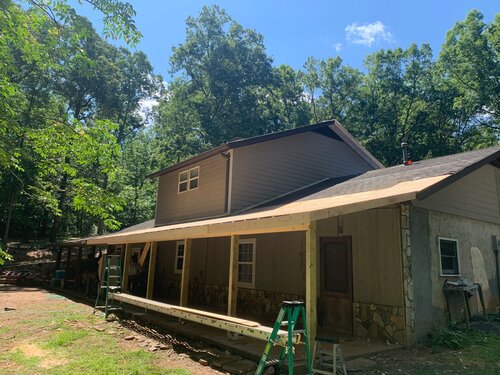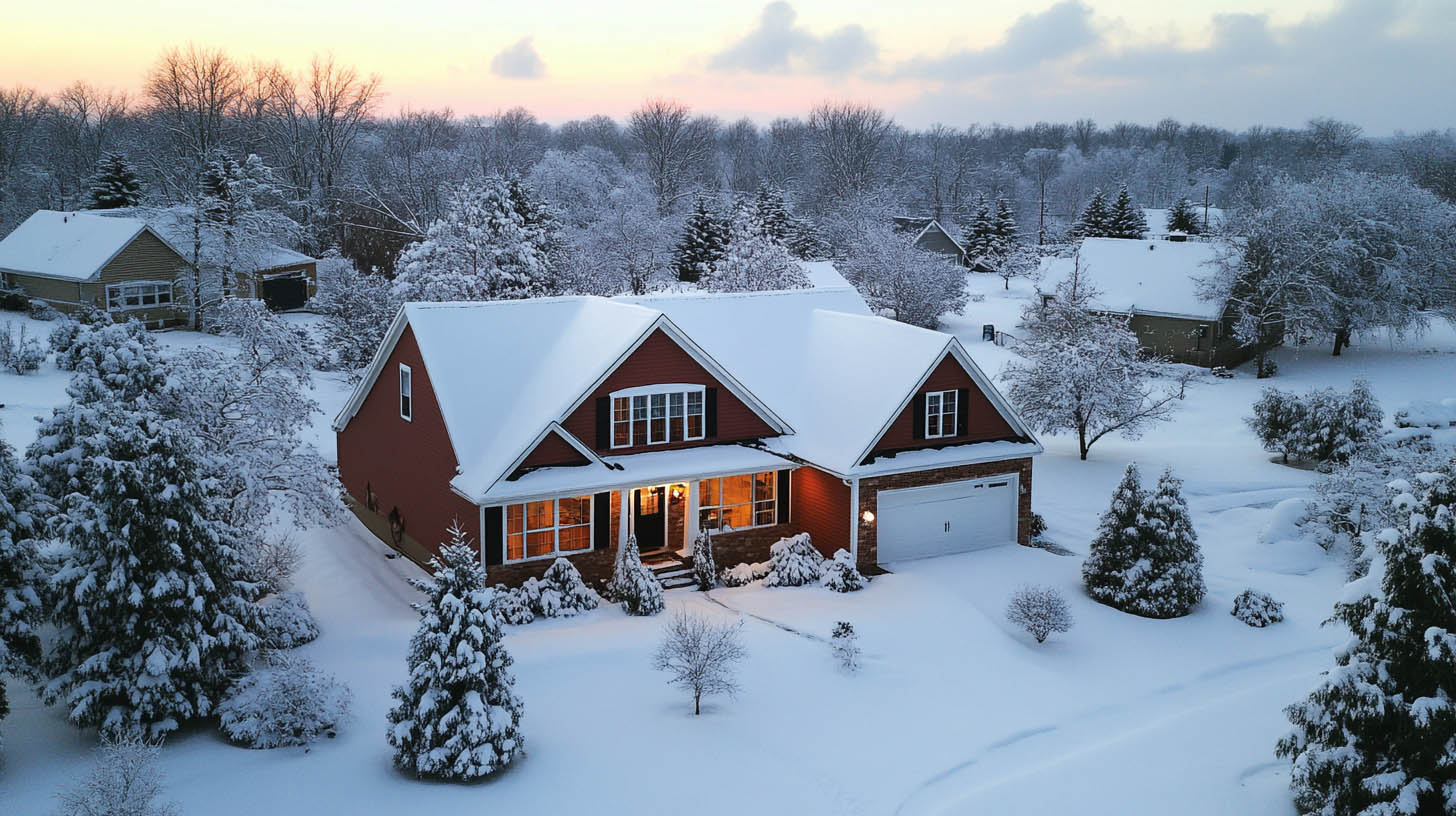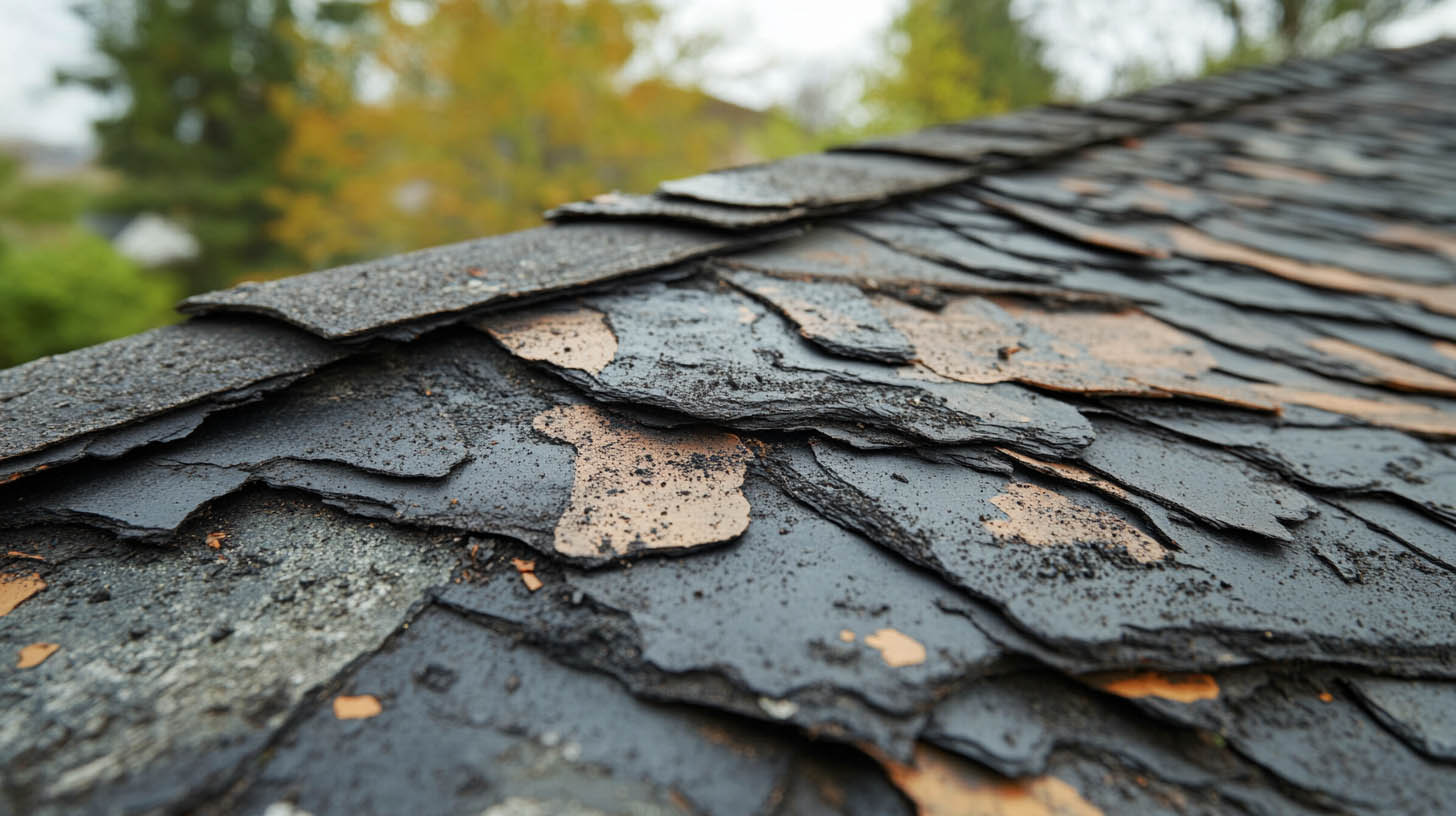Selecting the right roofing system is essential for the protection and efficiency of commercial buildings. At United Contracting & Roofing LLC, we provide a range of roofing solutions tailored to various commercial needs. Here, we explore five common commercial roof types, highlighting their features and benefits.
EPDM Roofing
Ethylene Propylene Diene Monomer (EPDM) is a durable, single-ply membrane rubber roofing material ideal for low-slope and flat roofs. Known for its longevity, EPDM can last between 15 and 20 years with proper maintenance.
Advantages:
- Durability: Resistant to hail, high winds, and ice.
- Cost-Effective: Offers significant value for the investment.
- Versatile Installation: Can be fully adhered, mechanically fastened, or ballasted.
Considerations:
- Color: Typically black, which can absorb heat.
- Maintenance: May require occasional repairs to prevent blistering.
Green Roofing
Green roofs are designed to support vegetation, providing an eco-friendly option for commercial buildings. They are commonly used in urban settings to create green spaces on top of buildings.
Advantages:
- Environmental Benefits: Helps reduce urban heat islands and provides natural insulation.
- Longevity: Can last up to 50 years or more.
- Aesthetic Appeal: Enhances the building’s appearance with greenery.
Considerations:
- Complex Installation: Requires multiple layers including drainage and root barriers.
- Maintenance: Needs regular upkeep to manage vegetation and ensure proper drainage.
Modified Bitumen
Modified bitumen is an asphalt-based roofing system similar to built-up roofing but includes rubber additives for increased flexibility.
Advantages:
- Durability: Ideal for areas with heavy foot traffic.
- Weather Resistance: Performs well in cold weather, resisting cracks.
- Ease of Application: Comes in smaller rolls, suitable for compact areas.
Considerations:
- Aging: Prone to cracking over time but can be coated to extend lifespan.
- Installation: Requires professional installation for optimal performance.
PVC Roofing
Polyvinyl Chloride (PVC) roofing is a single-ply membrane known for its energy efficiency and durability. It is a popular choice for commercial and industrial buildings.
Advantages:
- Energy Efficiency: Reflects sunlight, reducing cooling costs.
- Durability: Resistant to chemicals, punctures, and fire.
- Customizable: Available in various thicknesses and widths.
Considerations:
- Cost: More expensive than other single-ply options but offers long-term value.
- Installation: Requires heat-welded seams for optimal performance.
TPO Roofing
Thermoplastic Polyolefin (TPO) is a single-ply roofing material that combines the benefits of EPDM and PVC. It is known for its flexibility and resistance to various environmental factors.
Advantages:
- Energy Efficiency: Reflects sunlight, enhancing energy savings.
- Durability: Resistant to fire, UV damage, and chemicals.
- Versatile Installation: Can be adhered, mechanically fastened, or heat-welded.
Considerations:
- Maintenance: Requires regular inspections to maintain seam integrity.
- Longevity: Can last up to 30 years with proper care.
Choosing the Right Roof
Selecting the appropriate roofing system depends on your building’s specific needs, location, and budget. At United Contracting & Roofing LLC, we offer professional consultations to help you choose the best roofing solution.
Conclusion
Understanding the various types of commercial roofing systems can help you make informed decisions for your building’s needs. At United Contracting & Roofing LLC, we provide expert installation and maintenance services to ensure your roof’s longevity and performance. Contact us today for a consultation and discover the best roofing options for your commercial property. For more information on Preparing Your Manufacturing Plant for Roof Repairs, click here.

